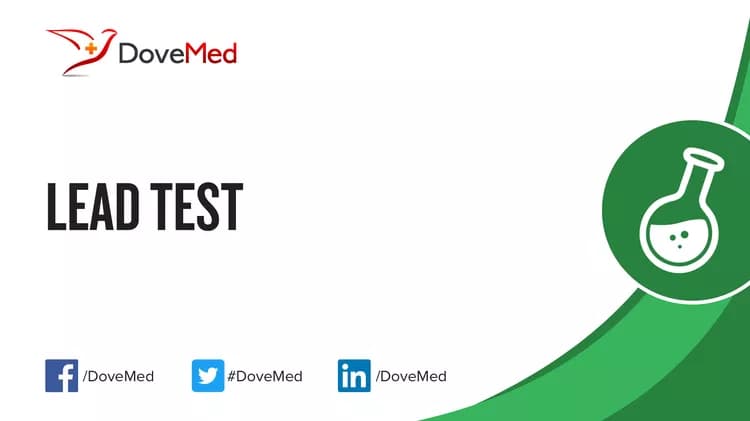What are the other Names for this Test? (Equivalent Terms)
- Blood Lead Level Test
- Blood Lead Test
- Pb Test
What is Lead Test? (Background Information)
- Blood Lead Level Test (or simply Lead Test) detects the concentration of lead, present in blood
- Lead (Pb) is a metal that was previously used in paints, water pipes, gasoline, solder, and other household goods. The use of lead has now been restricted, as it has been found to affect many body systems, chiefly the nervous system
- Children are especially susceptible to poisoning with lead. Following prolonged lead exposure, infants may have retarded brain development and behavioral problems
- Lead may cause miscarriages in pregnant women and may also be passed onto their children, while inside the womb
- The metal may also cause:
- Anemia, tiredness
- Stomach distress
- Weakness
- Peripheral neuropathy (nerves in the distant portion of the body, such as in the hands and feet are affected)
- Kidney and reproductive problems
- In view of the toxic effects of lead, the blood levels are assessed in children and in adults, to either screen them for elevated levels, or to make a diagnosis of lead poisoning, or to monitor the blood levels over time
What are the Clinical Indications for performing the Lead Test?
The clinical indications for a Lead Test include:
- Screening adults with possible occupational lead exposure, such as construction workers, individuals working in smelter facilities, auto repair industries, etc.
- Screening children - the American Academy of Pediatrics (AAP) recommends screening twice, at ages 1 and 2 years, or as a minimum, once at age 2 years
- The presence of symptoms suggestive of lead poisoning or lead exposure, such as:
- Fatigue, nausea
- Headache
- Abdominal pain
- Tremors
- Pallor (due to anemia)
- Memory loss
- Weakness of limbs, foot drop
- Children with delayed physical and mental development
- For monitoring those individuals, who are found to have elevated levels of lead in blood, on testing
How is the Specimen Collected for Lead Test?
Sample required: Blood
Process:
- In infants - a heel stick sample is obtained, by making a small prick on the heel
- In young children - a finger stick sample is obtained by making a small prick on a finger
- In adults - the blood sample is drawn through a needle inserted into the vein (arm)
Preparation required: None
What is the Significance of the Lead Test Result?
The acceptable blood levels of lead are as follows:
- Children: Below 5mcg/dL (micrograms per deciliter) - The U.S. Centers for Disease Control and Prevention, changed the reference level for children, from 10mcg/dL to 5mcg/dL, in 2012
- Adults: Below 10mcg/dL - it is the U.S. National Institute for Occupational Safety and Health designated reference value
Children with blood levels of lead:
- Greater than 5 mcg/dL require monitoring and further testing
- More than 45mcg/dL, or with symptoms at lower lead levels, require treatment
The cause of elevated blood lead level is also to be investigated.
Adults with blood levels of lead:
- More than 50mcg/dL (in construction industry), or more than 60mcg/dL (in general industry) are to be removed from works involving lead exposure. They may return to work, once their blood lead levels decreases to 40 mcg/dL (according to the U.S. Occupational Safety and Health Administration, OSHA)
- More than 60-70 mcg/dL, or those who are symptomatic at lower levels, should be treated
The laboratory test results are NOT to be interpreted as results of a "stand-alone" test. The test results have to be interpreted after correlating with suitable clinical findings and additional supplemental tests/information. Your healthcare providers will explain the meaning of your tests results, based on the overall clinical scenario.
Additional and Relevant Useful Information:
- According to the recommendations of the American Academy of Pediatrics (AAP) and the Centers for Disease Control and Prevention (CDC), individual (U.S.) states should develop lead level screening plans for children
Certain medications that you may be currently taking may influence the outcome of the test. Hence, it is important to inform your healthcare provider, the complete list of medications (including any herbal supplements) you are currently taking. This will help the healthcare provider interpret your test results more accurately and avoid unnecessary chances of a misdiagnosis.
Related Articles
Test Your Knowledge
Asked by users
Related Centers
Related Specialties
Related Physicians
Related Procedures
Related Resources
Join DoveHubs
and connect with fellow professionals


0 Comments
Please log in to post a comment.